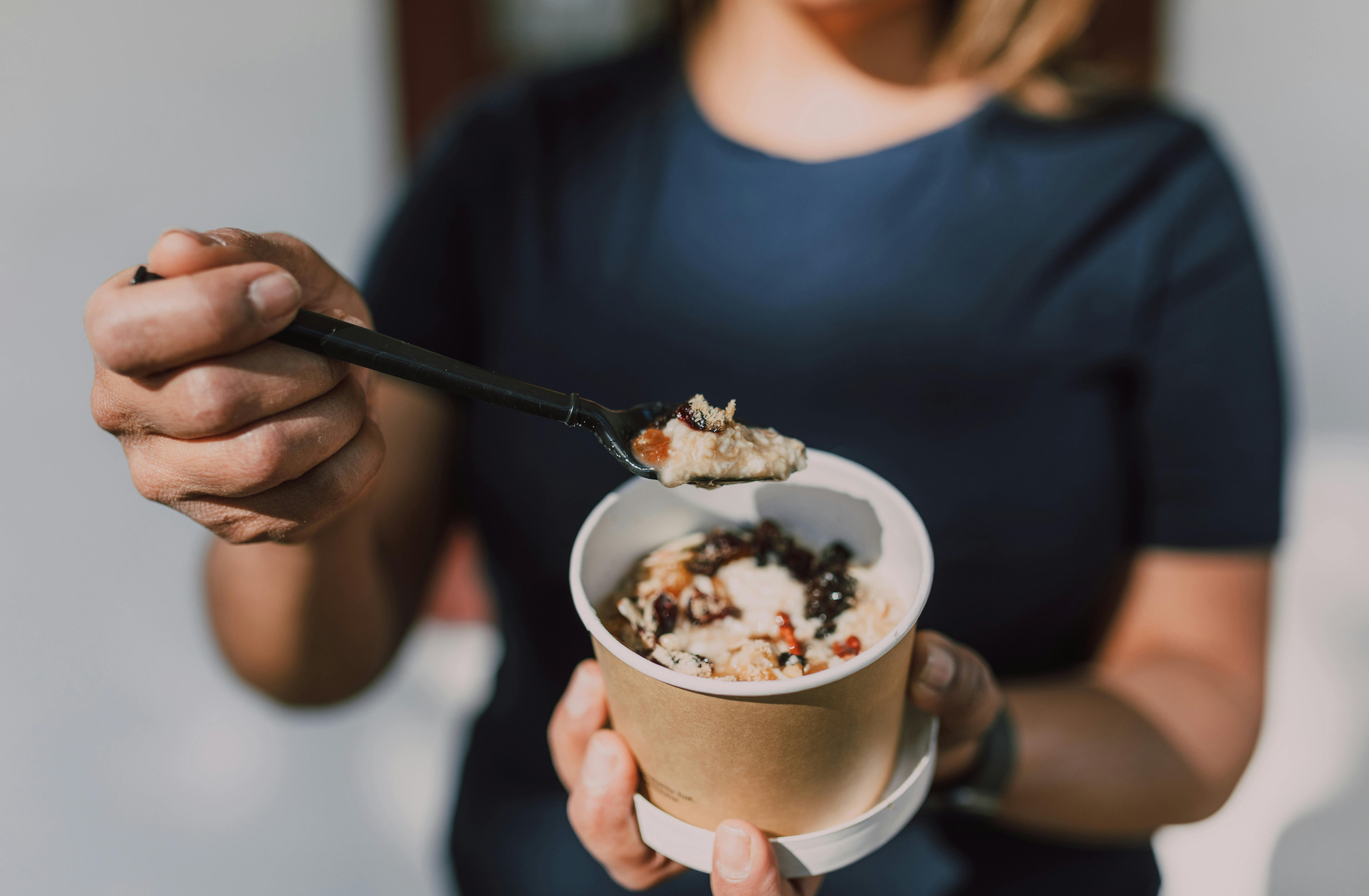By Performance Nutritionist, Tamara Walker book a 1-2-1 with Tam here
If you’re an athlete, you probably think about training hard, eating right, and getting enough rest. But there’s a hidden teammate working 24/7 inside you: your gut microbiome. This microscopic community inside your digestive tract plays a big role in how well you perform, recover, and even stay healthy during the season.
What Is the Gut Microbiome?
The gut microbiome is made up of trillions of microorganisms, mostly bacteria but also fungi, viruses, and other microbes, living in your intestines. In total, they weigh about as much as your brain and contain more genes than your entire human genome (1).
These microbes help:
· Digest complex carbohydrates that your body can’t break down on its own, producing short-chain fatty acids (SCFAs) like butyrate that provide energy and reduce inflammation (2).
· Produce vitamins such as B12, folate, and vitamin K, essential for muscle function and bone health (3).
· Train your immune system, helping you fight infections that could sideline you from practice or competition (4).
· Regulate mood and focus via the gut–brain axis, which communicates through nerve signals and chemical messengers (5).
Why Youth Athletes Need to Care
Your teen years are a time of rapid growth as your bones, muscles, and nervous system are still developing (6). When you combine this growth with intense training, your body’s nutritional demands skyrocket.
However, high-intensity exercise can sometimes stress the digestive system, alter gut permeability (often called leaky gut), and change the microbiome composition (7). This can affect nutrient absorption, increase inflammation, and slow recovery if you’re not eating to protect your gut.
Gut-Friendly Nutrition Game Plan
1. Eat a Wide Variety of Plants
Different gut microbes thrive on different plant fibres. Studies suggest that eating 20 to 30 different plant foods per week increases microbiome diversity, which is linked to better overall health (8).
Pro tip: Instead of the same fruit every day, rotate berries, bananas, apples, and oranges. Swap white rice for quinoa or brown rice occasionally.
2. Get Your Prebiotics
Prebiotics are fibers that feed beneficial bacteria. Common ones include inulin, fructo-oligosaccharides, and resistant starch. These are found in oats, garlic, onions, asparagus, bananas, and legumes (9). Prebiotics can improve SCFA production, which supports energy and recovery.
3. Include Probiotics
Probiotics are live beneficial microbes that can help restore gut balance, especially after stress or illness.
· Food sources: yogurt with live cultures, kefir, kimchi, sauerkraut and miso (10).
· Some strains, like Lactobacillus casei Shirota, have been linked to fewer respiratory illnesses in athletes (11).
4. Hydrate Like It Matters Because It Does
Water helps move nutrients through your digestive tract and supports a healthy gut lining (12). Even mild dehydration can increase GI distress during exercise.
5. Limit Gut Disruptors
A diet high in ultra-processed foods and sugar can reduce microbiome diversity (13). Overuse of antibiotics can also wipe out beneficial bacteria, sometimes taking months to recover (14).
Quick, Gut-Friendly Snacks
· Yogurt parfait with berries, oats, and chia seeds
· Whole-grain wrap with turkey, avocado, and spinach
· Apple slices with almond butter
· Hummus with whole-grain pita and carrots
· Trail mix with nuts, seeds, and dried fruit
Conclusion
Your gut microbiome isn’t just about digestion. It’s a performance partner. By feeding it with the right mix of fiber, probiotics, and hydration, you can improve your endurance, recovery, and immune defence, giving you a competitive edge on and off the field.
By Performance Nutritionist, Tamara Walker book a 1-2-1 with Tam here
Disclaimer: This article is intended to provide general information about nutrition for youth athletes and is not meant to replace professional dietary advice or individual nutritional counselling. Every child's nutritional needs can vary due to factors such as age, size, physical activity level, and medical conditions. We strongly recommend consulting with a registered dietitian or a healthcare provider before making changes to your child's diet, such as adding food powders. YSN and the author of this article do not take responsibility for any possible consequences from any treatment, procedure, dietary modification, action, or application of medication which results from reading or following the information contained in this article.
References
1. Human Microbiome Project Consortium. Nature. 2012;486:207–214.
2. Koh A, et al. From dietary fiber to host physiology: Short-chain fatty acids as key bacterial metabolites. Cell. 2016;165(6):1332–1345.
3. LeBlanc JG, et al. Bacteria as vitamin suppliers to their host: A gut microbiota perspective. Curr Opin Biotechnol. 2013;24(2):160–168.
4. Belkaid Y, Hand TW. Role of the microbiota in immunity and inflammation. Cell. 2014;157(1):121–141.
5. Cryan JF, et al. The microbiota–gut–brain axis. Physiol Rev. 2019;99(4):1877–2013.
6. Rogol AD, et al. Growth and pubertal development in children and adolescents. J Adolesc Health. 2002;31(6):192–200.
7. Clark A, Mach N. Exercise-induced stress behavior, gut–microbiota–brain axis and diet: A systematic review. Nutrients. 2016;8(7):404.
8. McDonald D, et al. American Gut: An Open Platform for Citizen Science Microbiome Research. mSystems. 2018;3(3):e00031-18.
9. Gibson GR, et al. Dietary prebiotics: Current status and new definition. Food Sci Technol Bull Funct Foods. 2010;7(1):1–19.
10. Marco ML, et al. Health benefits of fermented foods: Microbiota and beyond. Curr Opin Biotechnol. 2017;44:94–102.
11. Gleeson M, et al. Probiotic supplementation reduces the duration and incidence of infections in athletes. Int J Sport Nutr Exerc Metab. 2011;21(1):55–64.
12. Jeukendrup AE, et al. Gastrointestinal issues in athletes: Prevention and management. Sports Med. 2011;41(10):863–881.
13. Zinöcker MK, Lindseth IA. The Western diet–microbiome–host interaction and its role in metabolic disease. Nutrients. 2018;10(3):365.
14. Dethlefsen L, et al. Incomplete recovery and individualized responses of the human distal gut microbiota to repeated antibiotic perturbation. Proc Natl Acad Sci USA. 2011;108 Suppl 1:4554–4561.


Leave a comment